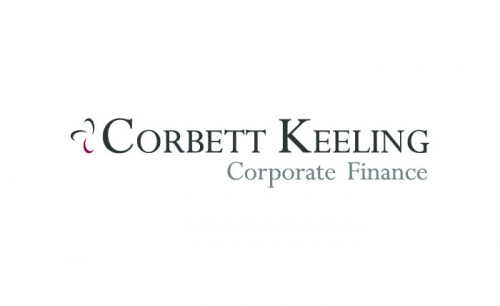Business exits –
Do you need a plan for a business exit?
Selling a company is very different to building and running a company, especially when it is one that you have spent most of your working life developing.

Getting it right requires planning and thought, while not having a business exit strategy can result in failed sales attempts, incorrect valuations, and a poor culture fit with the buyer. Here, Jim Keeling, Chairman of Corbett Keeling Corporate Finance explains the importance of planning a strategy for your sale.
The people we work with at Corbett Keeling are extremely proficient business leaders and entrepreneurs. Many are owner/managers who have built their companies from the ground up. They are sharp-minded and they are no strangers to making difficult decisions, but their business is their life’s work, so selling it is an extremely big moment in their careers, financially as well as personally.
Through our 30 years (and counting) in corporate finance, we have found that planning is essential to a successful sale. We achieve that through our PRO review process (positioning readiness optimisation). This is a one-day strategic workshop where we go through around 80 different questions that a buyer would consider when looking at a business. It allows us to assess the extent to which a company is ready to sell. As a result, we will provide a current valuation and an optimised valuation - the latter being what we feel they can achieve if they meet certain requirements over the coming weeks and months.
This planning formula allows us to deliver business owners what we call the ‘three Cs’ – cash, certainty, and chemistry. They are the three things that we have found to be of fundamental importance to business owners and to achieving a successful sale.
Cash
Cash (or at least, value) is the most obvious thing to think about when selling a company. The whole question of what a company is worth is quite a technical one and business owners can be out by as much as 50% up or down. We take a rigorous approach to value and with that we can help owners to make a measured decision as to whether it’s the right moment for them to sell.
Certainty
Certainty is the next priority for most people. Perhaps they have already had an abortive attempt at a sale, or it simply becomes clear that if you are going through the motions of preparing to sell, then you want it to come to fruition.
Failed sales attempts are not good for business. Aside from the time and emotional energy that goes into them, it diverts resources away from sales, and if customers and suppliers find out a business is for sale it can be off-putting. A failure can lead to a loss of confidence in the company and all those things are bad news.
I have always felt that if I was selling my business, I would want to be sure it was going to happen, so we designed our processes with that in mind. Our success rate is 97% over the last seven years, which results in part from our PRO review.
Chemistry
Chemistry often comes into focus a couple of months into the process, when owners begin to worry about who is going to buy this hugely important part of their lives. When people don’t take advice, they frequently don’t think about this until it’s too late, which can be very upsetting.
For many of our clients, selling their business is the culmination of 20 or 30 years of work. The process does and should take time to get right. Taking that time can mean a big variation in the sale value (as much as 10%), but it impacts the success of the sale as well. Yes, it is about money, but it is the less tangible issues that are much harder to navigate, and that is a key area in which we hope we provide support, guidance, and integrity.
Read more
Brochures & email subscriptions
Request a brochure, or subscribe to our email updates.

Becoming a client
Take control of your finances today by completing our enquiry form. Alternatively, you can call us on the number below and one of our team will be more than happy to talk about your future.
